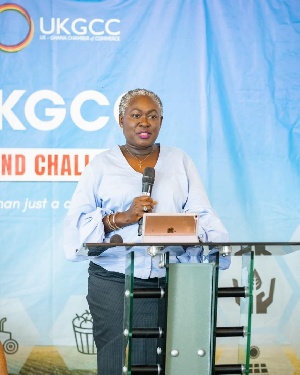Business News of Friday, 4 April 2025
Source: www.ghanawebbers.com
Trade Ministry pledges commitment to agricultural transformation
The Ministry of Agriculture is partnering with private sector players. They aim to scale up commercial farming in Ghana. The goal is to move from smallholder farmers managing two hectares to large-scale operators managing at least 5,000 hectares.
The government promises to provide key inputs for mechanized and commercial farming. This commitment follows concerns raised at the Accra Workshop of the UK-Ghana Chamber of Commerce (UKGCC). Industry players highlighted challenges faced by local farmers during this event.
William Hunt, Country Director of Demeter Ghana, spoke at the workshop. He urged the government to invest in modern farming techniques. Mr. Hunt believes this will maximize income and improve productivity.
He noted that Ghana's agriculture sector has immense potential despite current challenges. With proper tools, policies, and partnerships, they can close the yield gap. Investment in commercially viable farm funds is also essential for mechanization and reliable supply chains.
The UKGCC Grand Challenge programme encourages innovation in agriculture and energy sectors. It is a structured competition where innovators propose solutions to key challenges. Adjoba Kyiamah, Executive Director of UKGCC, emphasized the importance of collaboration among various stakeholders.
She mentioned that the programme provides capacity-building and funding opportunities for innovators. This helps them refine their solutions and create impactful projects. During the workshop at Mix Design Hub in Accra, applicants exchanged ideas and developed competitive proposals.
A panel of industry experts provided mentorship during the workshop. Notable members included Saqib Nazir from Mojo Payments and Dr. Markus Perkmann from Imperial College Business School. Shortlisted applicants will have a chance to pitch for spots in a UK roadshow for international exposure.
The Grand Challenge workshop will continue in Kumasi next, engaging relevant stakeholders there as well. This initiative falls under the Sankore Programme backed by the UK Government through WARIH. Sankore aims to strengthen West African innovation systems and scale impactful solutions across the region.











